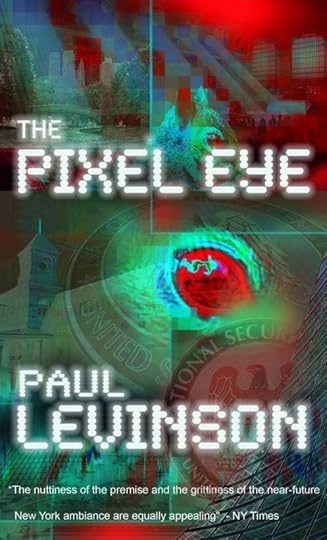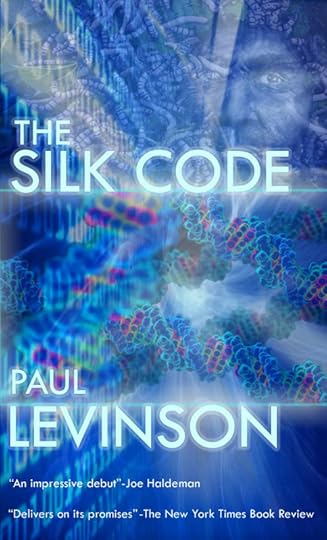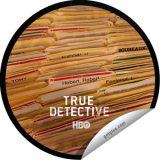Paul Levinson's Blog: Levinson at Large, page 319
March 4, 2014
Intelligence 1.9: EMP Amnesia and Children
 A good Intelligence 1.9 last night, in which an EMP - electromagnetic pulse - knocks cybercommand offline and robs Gabriel of his memory. Given Gabriel's Delta Force abilities, and Jin Cong's capacity to point Gabriel's chip in the wrong direction, i.e., make him believe his colleagues including Riley are the bad guys, we have an enjoyably tense and dangerous situation.
A good Intelligence 1.9 last night, in which an EMP - electromagnetic pulse - knocks cybercommand offline and robs Gabriel of his memory. Given Gabriel's Delta Force abilities, and Jin Cong's capacity to point Gabriel's chip in the wrong direction, i.e., make him believe his colleagues including Riley are the bad guys, we have an enjoyably tense and dangerous situation.Riley saves the day, with the realization that she can reach Gabriel by appealing to his heart - what he really feels when he looks at her - rather than his intellect, and this provides a good lesson about the most important things in life. It also shows why we're still such a long way from developing the kind of emotionally sensitive android we see, for example, with Dorian in Almost Human. Our most sophisticated AIs today can only mimic emotion - much like a parrot speaks words - and lack what Riley was able to call forth in Gabriel.
But speaking of emotions, I wasn't happy to see Riley's shocked and embarrassed reaction when Gabriel asks if he and she had been intimate, as he tries to understand the nature of their relationship that he's forgotten. A better and more truthful answer would been a quiet no, with an additional divulgence that someday they might, though.
Meanwhile, we also get an important ethical treatment of the Athens List - the list of children with the gene that allows successful embedding of the Gabriel chip - which is the ultimate target of Jin's attack. Is using children, even for the worthy goal of maintaining world peace, a morally defensible strategy? Just about everyone, including Shenandoah who developed the list, thinks not, and it's left to Lillian to defend the need for such a list. She does a surprisingly good job of that, and the fact that the question is ultimately not answered is much where it should be - sometimes there are no clear answers in questions of war and peace.
Intelligence continues as one of the most thoughtful, enjoyable new shows of the season.
See also Intelligence Debuts ... Intelligence 1.2: Lightning Changes ...Intelligence 1.3: Edward Snowden and 24 ... Intelligence 1.4: Social Media Weaponry ... Intelligence 1.5: The Watch ... Intelligence 1.6: Helix meets Rectify and Justified ... Intelligence 1.7: Nanites ... Intelligence 1.8: Heart of Darkness, Cyberstyle
#SFWApro

Like science fiction about chips in the brain? Check out The Pixel Eye
Paul Levinson's books ... Paul Levinson's music
Published on March 04, 2014 09:55
March 3, 2014
Almost Human 1.13: Almost Over?
 The season one finale of Almost Human - 1.13 - tonight was good, with the mix of strong plot, humor, and pathos we've come to expect from this series. Unfortunately, the episode ended in a way which feels like the conclusion not just of the season but the series.
The season one finale of Almost Human - 1.13 - tonight was good, with the mix of strong plot, humor, and pathos we've come to expect from this series. Unfortunately, the episode ended in a way which feels like the conclusion not just of the season but the series.Dorian gets unmistakable evidence that Kennex really values their partnership - Kennex tells the review board that the partnership with Dorian is why he's continuing with his police work. Kennex clears his father's name. At last, Kennex is at peace with his work, if not yet his life.
 There's still a lot to of unfinished business in this series. Why did Kennex's lover betray him? What's going on over the wall? What does the genius who went over the wall have in mind? Will Kennex ever act on his attraction to Stahl?
There's still a lot to of unfinished business in this series. Why did Kennex's lover betray him? What's going on over the wall? What does the genius who went over the wall have in mind? Will Kennex ever act on his attraction to Stahl?The all-important ratings for this series haven't been the greatest. The fast pace of television - not the presentation of the story lines, but speed with which new series must succeed or die - works against Almost Human's survival.
But it's earned some audience appreciation, including mine. The series has possibilities, especially in its treatment of just about every cutting edge information-tech now known or dreamed of. As such, even just this first season provides a great tableau of where our technological visions now reside.
But technologies continually evolve, and I'd like to see this series continue to provide this fictional accompaniment to our current accomplishments for at least a few more years to come. We've got a long way to go until we get to the 2040s.
See also: Almost Human debuts: A Review ... Almost Human 1.2: Sexbots ... Almost Human 1.3: Change of Face ... Almost Human 1.4: Almost Breaking Bad ... Almost Human 1.5: Clones and Holograms ...Almost Human 1.6: The Blackmarket Heart and Double Dorian ... Almost Human 1.7: Meets Criminal Minds ... Almost Human 1.8: Guided Bullets ... Almost Human 1.9: Literally Bad Robot ... Almost Human 1.10: Killer Genes ... Almost Human: 1.11: The Metaphysics of Flesh ... Almost Human 1.12: If Guy de Maupassant Had Been a Science Fiction Writer
#SFWApro

Like science fiction with bio-tech? Try The Silk Code Paul Levinson's books ... Paul Levinson's music
Published on March 03, 2014 20:21
True Detective: Socrates in Louisiana
 This season of True Detective concludes on HBO next Sunday, so I thought it was time to say a few words about it. Started a little slow - I guess I was expecting something more along the lines of Criminal Minds and its pacing - but True Detective has become one of my favorite shows in the history of television, with an indelibly philosophic and anguished detective we've never seen the likes of before on TV and likely never will again.
This season of True Detective concludes on HBO next Sunday, so I thought it was time to say a few words about it. Started a little slow - I guess I was expecting something more along the lines of Criminal Minds and its pacing - but True Detective has become one of my favorite shows in the history of television, with an indelibly philosophic and anguished detective we've never seen the likes of before on TV and likely never will again.Matthew McConaughey won the Oscar last night for Dallas Buyers Club last night, and he deserves an Emmy and more for his portrayal of Rust Cohle, in 1995 and 2012, and a little in 2002 as well. Make-up does part of the job, but McConaughey's rendition of an aging character is right up there with the best of them. The truly searing persona, the detective whose depth of analysis and grasp of human existence would have done Socrates proud, is the Rust of 1995. The combination of McConaughey's voice - almost mesmerizing - and the literacy of what he says is something I don't recall ever seeing or hearing on television or in the movies.
Woody Harrelson does a fine job as Marty Hart, Rust's partner. If Rust has the intensity and out-of-world spirituality of a Jesuit, Marty is a man of the world. Although both are usually able to keep their emotions in check, Marty is the more likely to let his frustrations boil over and out into the world and those around him. Harrelson, in fact, delivers a characterization of a partner as powerful as McConaughey's of the protagonist detective, and just as memorable in this only slightly secondary position.
 The plot ain't bad, either. Rust is so intense that, in the first part of the season, I was thinking he might well be serial killer he and his partner were hunting in Louisiana. But once the new detectives investigating the case in 2012 made clear that this was indeed their view, it became pretty clear that Rust is not the killer. There's also a rewarding attention to detail in the story. Although Marty tells everyone that he's sure Rust is not the killer, Marty packs a gun when he goes to Rust's place in 2012.
The plot ain't bad, either. Rust is so intense that, in the first part of the season, I was thinking he might well be serial killer he and his partner were hunting in Louisiana. But once the new detectives investigating the case in 2012 made clear that this was indeed their view, it became pretty clear that Rust is not the killer. There's also a rewarding attention to detail in the story. Although Marty tells everyone that he's sure Rust is not the killer, Marty packs a gun when he goes to Rust's place in 2012.Women do not play major roles in this first season of True Detective, though Lili Simmons (Banshee's Rebecca) provides a bit of eye-candy, and Michelle Monaghan puts in a good performance as Marty's wife, who seduces a reluctant Rust after she learns of Marty's indiscretions. Rust's guilt over this, and his not wanting to look at Marty every day in the aftermath, is likely the real reason he left law enforcement.
But he didn't leave the investigation. And although his and Marty's reunion for one last time in last night's episode is a fitting conclusion to this story, it will be satisfying to see if the two can finally get their killer next week, and Rust's last words about it, whether they do or don't.

Like Socrates? Try The Plot to Save Socrates ...
#SFWApro Paul Levinson's books ... Paul Levinson's music
Published on March 03, 2014 10:22
March 1, 2014
Black Sails 1.6: Rising Up
 A socially progressive Black Sails 1.6 tonight - not by ballots but the ballast of weaponry and intrigue, which Black Sails does so well.
A socially progressive Black Sails 1.6 tonight - not by ballots but the ballast of weaponry and intrigue, which Black Sails does so well. Women were ascendant on all fronts. Anne Bonny kills the muscle-bound man who threatened her. That became possible because of Eleanor's astute plan. Max is freed, at last. Miranda Barlow seduces Pastor Lambrick. And a female slave in the hold with Scott puts Bryson out of his misery, in a slave uprising which not only serves the conscience of humanity by Flint's goals as well.
Women were ascendant on all fronts. Anne Bonny kills the muscle-bound man who threatened her. That became possible because of Eleanor's astute plan. Max is freed, at last. Miranda Barlow seduces Pastor Lambrick. And a female slave in the hold with Scott puts Bryson out of his misery, in a slave uprising which not only serves the conscience of humanity by Flint's goals as well. Flint, however, is by no means totally victorious, not even in the ethical dimension in which he usually reigns. Billy winds up overboard as the Walrus seeks to make a hasty departure from cannon balls starting to rain down on the deck. We see Billy and Flint cutting ropes to free the Walrus from a mast that has gone overboard. Then a second cannon ball hits. Next thing we know, Flint is shouting that Billy went overboard. There's no time to go back and look for him.
Did Flint have something to do with Billy falling into the water? We don't see anything like this, but Billy's fall from the boat happened at an ideal time for Flint - Billy knows about the letter that Miranda sent, and Flint now knows that Billy knows.
I'm a firm believer in the television principle that if you don't see someone's head point blank blown off, he or she may still be alive. In the case of Billy, we've seen nothing at all of his departure.
Plus, I think Flint is a better man than that. So, I predict that before this season is over for Black Sails - which it will be soon - we'll be seeing Billy on some island or boat.
See also Black Sails: Literate and Raunchy Piracy ... Black Sails 1.3: John Milton and Marcus Aurelius ... Black Sails 1.4: The Masts of Wall Street
#SFWApro




 Paul Levinson's books ... Paul Levinson's music
Paul Levinson's books ... Paul Levinson's music
Published on March 01, 2014 21:27
Helix 1.9: Brass Tacks
 Well, Helix 1.9 last night finally began to get down to brass tacks - though they're still being kept close to the chest, with big questions still unanswered or barely addressed.
Well, Helix 1.9 last night finally began to get down to brass tacks - though they're still being kept close to the chest, with big questions still unanswered or barely addressed.Here's what we know for sure, so far. Hiroshi is Julia's father and they both have those bright alien eyes. Julia didn't spend her childhood out west - she was in fact in the lower realms of the Arctic facility. The zombies - or vectors, in Helix-speak - are afraid of Julia. (But I don't recall them being afraid of Hiroshi, which raises an interesting question.) The facility has more viral specimens than "the CDC" - which means, many indeed. And the virus responsible for the outbreak is en route to the outside - stolen - which could result in a billion deaths.
Whew! That's a powerful situation, and it's good to see it finally becoming more clear. But still looming large and unknown is the relationship between the deadly virus, the cure, and the bright eyes. Presumably, from what we've seen, the trajectory is infection with the zombie-making virus, introduction of the cure, and the emergence of the bright eyes in the cured person. That's what we saw with Julia, and likely the same happened to Hiroshi.
But what do the bright eyes mean? Are they an indication in some next stage of evolution for humanity? And is that stage connected to some alien intelligence life? And what does all this have to do with the indigenous people living in the Arctic?
Meanwhile, Sarah's getting worse, and Hiroshi promises her she'll be ok. Was this just to calm her? Or does the virus cocktail hold some hope of a cure for her tumor, which is what I've been thinking all along.
Good to see this show picking up some steam in the cold.
See also Helix 1.1-1.3: Zombies with Biology ... Helix 1.4: Cold DNA ...Helix 1.5: In the White Room ... Helix 1.6: Good New Clues, Nutcracker Not Sweet ... Helix 1.7: Bright Eyes ... Helix 1.8: Glacial Speed

Like biological science fiction? Try The Silk Code
#SFWApro
Paul Levinson's books ... Paul Levinson's music
Published on March 01, 2014 12:13
February 28, 2014
"Author's Cut" Updated Kindle Edition of The Pixel Eye published by JoSara MeDia
 I'm pleased to announce that JoSara MeDia has just published a Kindle edition of my novel, The Pixel Eye.
I'm pleased to announce that JoSara MeDia has just published a Kindle edition of my novel, The Pixel Eye.The Pixel Eye was originally published by Tor Books in 2003, and was praised by The New York Times ("the nuttiness of the premise and the grittiness of the near-future New York ambiance are equally appealing"), Library Journal ("Levinson's latest novel featuring the resourceful and wise-cracking D'Amato delivers another satisfying mix of hard-sf intrigue and detective story set in New York City"), and reviews in numerous other places.
Squirrels are spying on us in the park. Mice may have organic bombs set to go off in their brains. Holograms are taking the place of real people. Phil D'Amato investigates a case that pits civil liberties versus national security as he seeks to ward off a major terrorist attack on near-future New York City.
Like the JoSara author’s cuts of The Silk Code, The Consciousness Plague, and The Plot to Save Socrates, this new edition of The Pixel Eye restores bits of my original wording lost to copy-editing. But it also contains significant updates in the world inhabited by forensic detective Dr. Phil D'Amato. The NSA existed in 2003 but was not often in the headlines. It plays a significant role in this 2014 edition of The Pixel Eye.
Also note that although The Pixel Eye is my third novel detailing the cases of Dr. D'Amato (after The Silk Code and The Consciousness Plague), it is an entirely standalone story, not a sequel, and can be read before the first two novels.
The new ebook edition of the novel has a specially commissioned cover by Joel Iskowitz, who designed the covers for The Silk Code, The Consciousness Plague, The Plot to Save Socrates, and Unburning Alexandria ebooks, and whose designs have appeared on stamps around the world, US coins, and murals.
I again chose JoSara MeDia because this small, savvy publisher did such a good job with The Silk Code, The Consciousness Plague, The Plot to Save Socrates, and Unburning Alexandria ebooks, as well as the Unburning Alexandria paperback published last summer. JoSara MeDia has published award-winning authors in multiple formats, including print, eBook, and enhanced eBooks as iPad and Android applications. JoSara MeDia also works with non-profit organizations, such as the Texas State Historical Association, assisting them with strategies and solutions to get their content available in these multiple formats.

reviews
"The nuttiness of the premise and the grittiness of the near-future New York ambiance are equally appealing" - The New York Times"a breezily chilling story ... enough to send a shiver down most readers' spines" - Publisher's Weekly"a thoroughly enjoyable book, extremely readable, and brave" - SF Weekly"D'Amato is a charming narrator and an intriguing character" - Cinescape"Levinson's latest novel featuring the resourceful and wise-cracking D'Amato delivers another satisfying mix of hard-sf intrigue and detective story set in New York City" - Library Journal#SFWApro
Paul Levinson's books ... Paul Levinson's music
Published on February 28, 2014 11:49
February 27, 2014
Revolution 2.14: Time Travel!
 Revolution was back with the 14th episode of its second season last night, which ended with a surprising turn to my favorite staple of science fiction: time travel.
Revolution was back with the 14th episode of its second season last night, which ended with a surprising turn to my favorite staple of science fiction: time travel.I've been not overly thrilled with the nanite story so far, especially the mystical elements, which take the series out of science fiction and into fantasy and mythos. So, on that account alone, it was great see Aaron suddenly transported back to 2014 as he struggled to put the nanites out of business for good, by introducing a virus destructive of the nanite code. My assumption is that the nanites had to be responsible for whisking Aaron back in time, as a way of saving themselves from his attack. Any other source would be a ridiculous and unfounded rabbit out of a hat.
And time travel could be just the thing to really galvanize Revolution. The Faraday time travel story did wonders for Lost, even though it couldn't save that series from the worst ending to a great series in human history. And the possibilities of what Aaron can do back in 2014 to change or regulate the future are legion and tempting.
Meanwhile, back in the future, Charlie gets some good cards in her hand, as well - or, actually, a handful of fighting men who are under her sole control. This could be another way of jump-starting the series, with Charlie now in a commanding rather than supporting role in the narrative.
Does Revolution need jump-starting? Well, it's been a pretty good season. But, yeah, it could use a little jolt, and time travel, if done well, is always in the market to do that, even if the new Charlie command doesn't work out.
See also Revolution 2.1: "The Last Surviving Friend" ... Revolution 2.2: Reanimation ... Revolution 2.4: Nanites and ... Maybe Aliens? ... Revolution 2.7: Firestarter Aaron vs. the Creepster ... Revolution 2.9: The Boy and the Attitude ... Revolution 2.10: Mexico and More ... Revolution 2.11: Captives and Nanites ... Revolution 2.12: Eugenics and Lubbock ... Revolution 2.13: Steve Tyler, Mummy
And see also Revolution: Preview Review ... Revolution 1.2: Fast Changes ... Revolution 1.14: Nanites and Jack Bauer ... Revolution 1.15: Major Tom and More 24 ... Revolution 1.16: Feeling a Little Like the Hatch in Lost ... Revolution 1.17: Even Better Nanites ... Revolution 1.18: Whodunnit? ... Revolution 1.19: Cheney's Bunker ... Revolution Season 1 Finale: Good Pivot

Like time travel? Try The Plot to Save Socrates ...
#SFWApro Paul Levinson's books ... Paul Levinson's music
Published on February 27, 2014 17:25
February 26, 2014
Intelligence 1.8: Heart of Darkness, Cyberstyle
 It was flashback time on Intelligence 1.8 on Monday, with a combination of the least amount of high-tech gadgetry we've seen on the show so far, and the most backstory for Gabriel.
It was flashback time on Intelligence 1.8 on Monday, with a combination of the least amount of high-tech gadgetry we've seen on the show so far, and the most backstory for Gabriel.This makes for a nice enough episode, but one which resembles the CBS mega-hit NCIS more then it does the science fiction on Person of Interest, Revolution, Almost Human, and Intelligence. Still, the developing chemistry between Gabriel and Riley was good to see, as was Gabriel before he had the implant.
And the story of Norris - who partnered with Gabriel in the flashback, and is the crucial character in the present part of the narrative - has echoes of Conrad's Heart of Darkness and Coppola's Apocalypse Now, which is to say, important and moving. The toll of war on those who survive can make them something less than human - or less motivated by the empathy that most of have - and Norris provides a powerful contrast to Gabriel on this score. Both survived. Gabriel was embedded with a chip which connects him directly with the Internet. Norris was not. And who is the more human? It's Gabriel, despite or maybe because of his techno assist.
This also makes a point which is consistent with my view of technology, and the view of a small number of other academics and theorists. The Nobel laureate biologist Sir Peter Medawar once said that technologies are what make us human. You can see evidence of this every day. When someone puts on a pair of glasses, is she or her less human? No, they are more human, because by seeing better, they can navigate their world better and more effectively accomplish their human goals. When someone puts on on Google Glass, are they less human? No, I would say they are more human, for the same reasons that corrective glasses better enable out humanity.
Gabriel and what he represents are not that big a step beyond Google Glass in its enablement of humanity. That's one of things that makes this series so good.
See also Intelligence Debuts ... Intelligence 1.2: Lightning Changes ...Intelligence 1.3: Edward Snowden and 24 ... Intelligence 1.4: Social Media Weaponry ... Intelligence 1.5: The Watch ... Intelligence 1.6: Helix meets Rectify and Justified ... Intelligence 1.7: Nanites
#SFWApro

Like science fiction about chips in the brain? Check out The Pixel Eye
Paul Levinson's books ... Paul Levinson's music
Published on February 26, 2014 15:30
February 25, 2014
House of Cards 2: Even Better than Season 1, and Why
 I saw the second season of House of Cards over the weekend - thanks to Netflix seamless streaming - and loved it. It's better than the first, which is saying a lot, because the first was outstanding, too. Spoilers galore follow.
I saw the second season of House of Cards over the weekend - thanks to Netflix seamless streaming - and loved it. It's better than the first, which is saying a lot, because the first was outstanding, too. Spoilers galore follow.Among the highlights
Frank's killing of Zoe at the end of the first episode - not only a stunning bolt from the blue, but thoroughly plausible given what we saw of Frank last year. The killing also had the virtue of getting Zoe off the show - her relationships with Frank last year was the least believable part of the first season. Later on in the second season, Frank says to Claire that he's not risking any more affairs, which makes good sense for a Vice PresidentFrank also establishes his direct commentary to the viewing audience at the end of the first episode - and, in general, this commentary works a little better than it did the first seasonMolly Parker, who's great at anything she does, was exciting and refreshing as the new Whip Jackie Sharp, the best new character in the series, who shined in every scene she was in, including those with Kevin Spacey, who gave another incandescent performance. Her affair with Remy, who also had an even better season than last year, was also one of the two most interesting affairs on the show.The other interesting affair is Rachel's with her lover Lisa, also a compelling new character, albeit with limited screen time.Good to see Rachel kill Doug - not only justified for this sicko political henchman, but another character who, although he had his moments, was mostly a drain on the show.The Freddie story is not a highlight because, although it was ok, I would have rather seen Freddie and Frank continue as they were last year. I suppose that couldn't last, though, because you can't have a President going out every morning for ribs.Frank's manipulation of events to finally become President of the United States is sheer genius.Ashleigh Banfield's interview with Claire, in which she reveals that she was raped, was superbly acted by Banfield. (I can't say the same for most of the other real anchors who appeared in the second season. Rachel Maddow and Sean Hannity were ok. Chris Hayes and Chris Matthews were stiff. I don't know why real people have so much trouble playing themselves. I know if I had to play the part of a professor, I'd do just fine :)I loved the opening credits and the music last year, and even more so this year. When the strings come in near the end I grieve and soar.So see House of Cards, second season, and treat yourself to one of the best pieces of television to come down the pike.
See also House of Cards Season 1: A Review

Like political fiction? The Consciousness Plague has a big scene in Washington, DC.
free sample of The Consciousness Plague
#SFWApro
 Paul Levinson's books ... Paul Levinson's music
Paul Levinson's books ... Paul Levinson's music
Published on February 25, 2014 16:28
February 24, 2014
Almost Human 1.12: If Guy de Maupassant Had Been a Science Fiction Writer
 A really fine Almost Human 1.12 tonight, with touches of O'Henry and The Twilight Zone, all wrapped up in nanobot plastic surgery for love story. Nanites are making their rounds in science fiction television this season, appearing in Intelligence as a separate episode last week, and as one of the foundations of this whole season of Revolution.
A really fine Almost Human 1.12 tonight, with touches of O'Henry and The Twilight Zone, all wrapped up in nanobot plastic surgery for love story. Nanites are making their rounds in science fiction television this season, appearing in Intelligence as a separate episode last week, and as one of the foundations of this whole season of Revolution.But Almost Human brings them to bear in a love story worthy of Guy de Maupassant and the classic short fiction mentioned above. In de Maupassant's "La Parure" ("The Necklace") published back in 1884, for example, a young woman borrows her friend's pearl necklace, accidentally loses it, borrows a huge amount of money to buy a replacement, and works like a dog for years to earn the money back. At the end of the story, she learns that the original necklace she borrowed was made of paste, and not worth much at all. Or, in The Twilight Zone's "Eye of the Beholder" (1960), a woman undergoes repeated plastic surgeries to improve her appearance. We see the doctors only from behind, and the woman's face only in bandages. At the end of the story, the doctors inform her that the surgery has failed. The camera finally shows us her face - she's beautiful - and pans around to show the faces of the doctors and nurses, which are grotesque in this alternate or alien world.
In tonight's Almost Human, the villain kills beautiful people to improve his appearance - he injects nanites into the victims to harvest the desired facial characteristics, but the injections leave the victims with fatal heart attacks. He does this because he's in love with a beautiful woman - they have fallen in love online and have never met in person - and he doesn't want her to be disappointed with his looks, which were ruined in an earlier experiment. He finally meets the woman near the end of story, only to learn that she is blind, can't see what he looks like, and loves him for who is - that is, the person she got to know online. So, all of his killing was for naught.
 All of this yearning for love ties in with Kennex and his loneliness. And in a very nice final touch, he asks Stahl to go to a bar with him, just as her date - a Chrome - shows up to take her to that very bar.
All of this yearning for love ties in with Kennex and his loneliness. And in a very nice final touch, he asks Stahl to go to a bar with him, just as her date - a Chrome - shows up to take her to that very bar.Almost Human has shown itself to be completely human in the richness of the stories it has given us, a rarity in science fiction television, more rare than nanites. The season finale is next week, and I hope Fox gives it at least another year.
See also: Almost Human debuts: A Review ... Almost Human 1.2: Sexbots ... Almost Human 1.3: Change of Face ... Almost Human 1.4: Almost Breaking Bad ... Almost Human 1.5: Clones and Holograms ...Almost Human 1.6: The Blackmarket Heart and Double Dorian ... Almost Human 1.7: Meets Criminal Minds ... Almost Human 1.8: Guided Bullets ... Almost Human 1.9: Literally Bad Robot ... Almost Human 1.10: Killer Genes ... Almost Human: 1.11: The Metaphysics of Flesh
#SFWApro

Like science fiction with bio-tech? Try The Silk Code
Paul Levinson's books ... Paul Levinson's music
Published on February 24, 2014 20:49
Levinson at Large
At present, I'll be automatically porting over blog posts from my main blog, Paul Levinson's Infinite Regress. These consist of literate (I hope) reviews of mostly television, with some reviews of mov
At present, I'll be automatically porting over blog posts from my main blog, Paul Levinson's Infinite Regress. These consist of literate (I hope) reviews of mostly television, with some reviews of movies, books, music, and discussions of politics and world events mixed in. You'll also find links to my Light On Light Through podcast.
...more
- Paul Levinson's profile
- 342 followers



